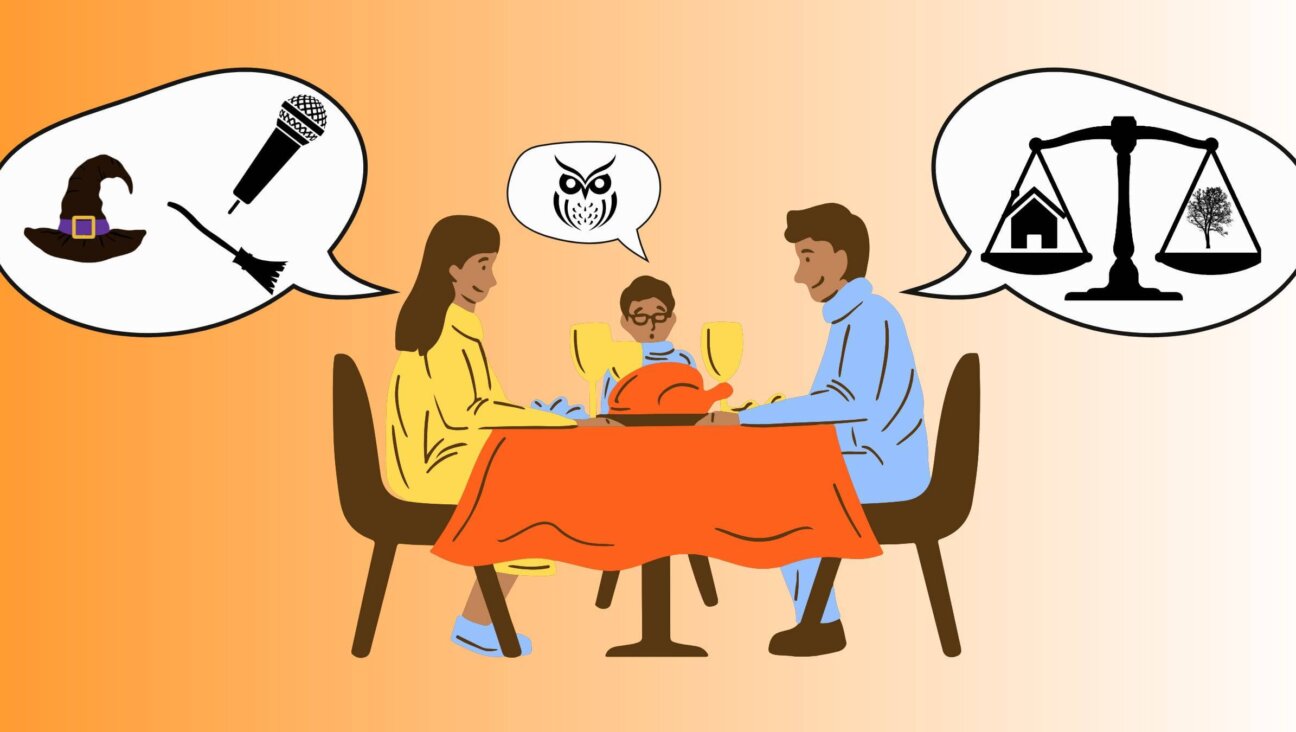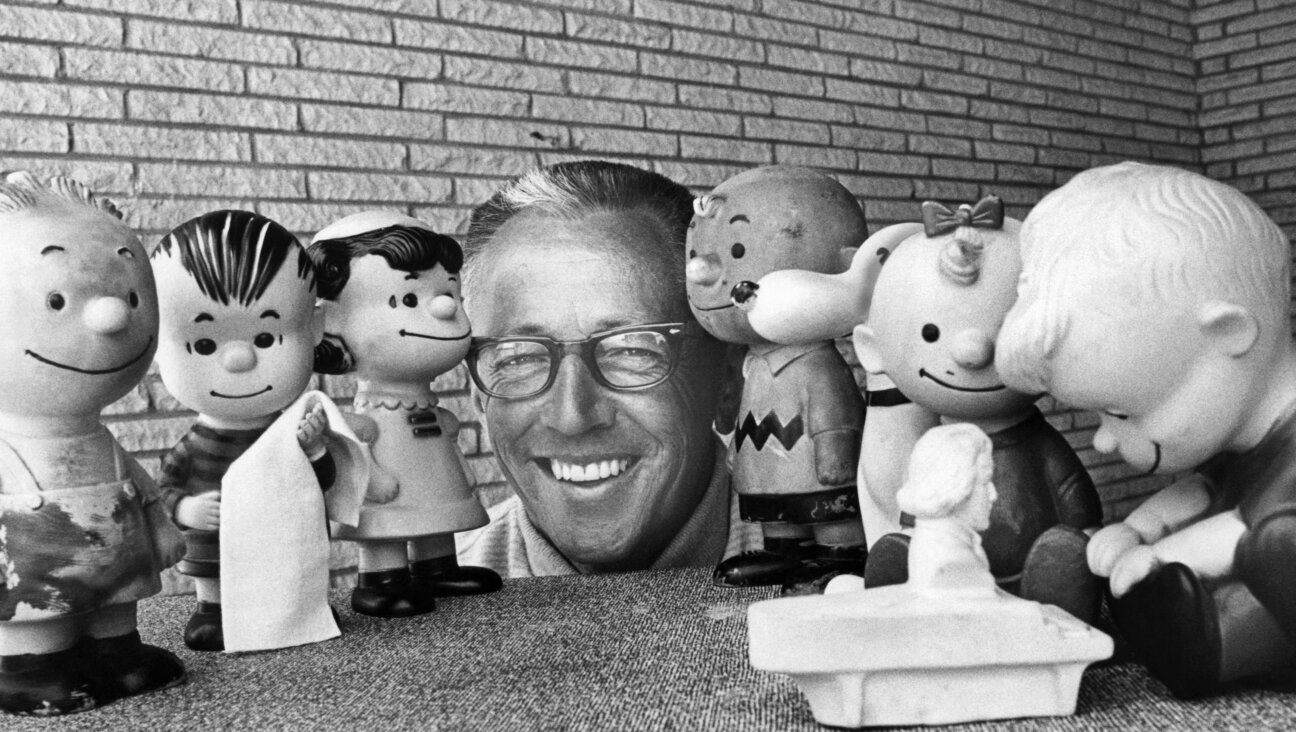‘Simpsons’ Creator Matt Groening Still Doesn’t Get The Probem With Apu

Matt Groening Image by Getty Images
Jews are not new to cultural appropriation in the media. We’ve long been stereotyped as big-nosed and anxiety-stricken. Paul Rust’s character Gus in Netflix’s current hit “Love” is perhaps the most recent of countless examples. No minority is immune to dominant cultures trying to adopt aspects of their own culture on screen or in real life.
But for Americans with South Asian heritage, the entertainment industry takes things a step further. Before there was Aziz Ansari or Mindy Kaling or Riz Ahmed working their way into an intolerant culture, there was Apu — the Indian convenience store clerk on “The Simpsons.” Apu, a heavily yet-vaguely accented cashier, voiced by a white, Jewish man, Hank Azaria.
Today, “Simpsons” creator Matt Groening argued in the New York Times that all criticism of Apu, even of his show, is “tainted” and lacks nuance.
The observation that the Apu character is problematic was made most definitively by comedian Hari Kondabolu in his 2017 documentary “The Problem with Apu,” which brilliantly demonstrated how just one influential character has formed our nation’s perspective on billions of people. The movie opened a major conversation about racism in entertainment which has raged on with as much fire as the internet can muster.
“The Simpsons,” still, somehow airing new episodes, responded:
In this scene, meant to downplay the racial accusation, Lisa Simpson says: “Something that started decades ago and was applauded and inoffensive is now politically incorrect. What can you do?” As Lisa glances at a picture of Apu, Marge Simpson said, “Some things will be dealt with at a later date.” Lisa adds, “If at all.”
Viewers were not amused by the show’s off-hand response. Kondabolu was quick to point out the show’s clear misrepresentation of Indian roles on Twitter. And Azaria, in a remarkable moment of apparent teshuva, apologized for the harm he has caused for the role.
In “The Problem with Apu,” I used Apu & The Simpsons as an entry point into a larger conversation about the representation of marginalized groups & why this is important. The Simpsons response tonight is not a jab at me, but at what many of us consider progress.
— Hari Kondabolu (@harikondabolu) April 9, 2018
But months later in an interview with USA Today, as if to purposely add fuel to the fire, Groening commented, “I’m proud of what we do on the show. And I think it’s a time in our culture where people love to pretend they’re offended.”
On Wednesday, Groening spoke to The New York Times’ about the ongoing backlash. In response to claims that people really are offended by the Apu character, he said:
“That’s something I’ve noticed for the last 25 years. There is the outrage of the week and it comes and goes. For a while, it was, believe it or not, kids were stealing quarters out of their mothers’ purses in order to go to the video arcade, and that was going to bring down civilization. No one even remembers that, because that lasted a week. I think particularly right now, people feel so aggrieved and crazed and powerless that they’re picking the wrong battles.”
In his final words of the interview, he notes, “I probably said too much.” Finally something we can all agreed on.
Bonnie is an intern for the Forward.
A message from our CEO & publisher Rachel Fishman Feddersen

I hope you appreciated this article. Before you go, I’d like to ask you to please support the Forward’s award-winning, nonprofit journalism during this critical time.
We’ve set a goal to raise $260,000 by December 31. That’s an ambitious goal, but one that will give us the resources we need to invest in the high quality news, opinion, analysis and cultural coverage that isn’t available anywhere else.
If you feel inspired to make an impact, now is the time to give something back. Join us as a member at your most generous level.
— Rachel Fishman Feddersen, Publisher and CEO























